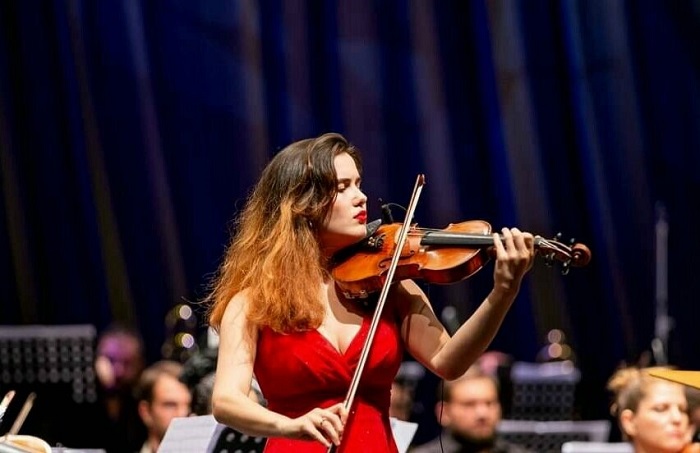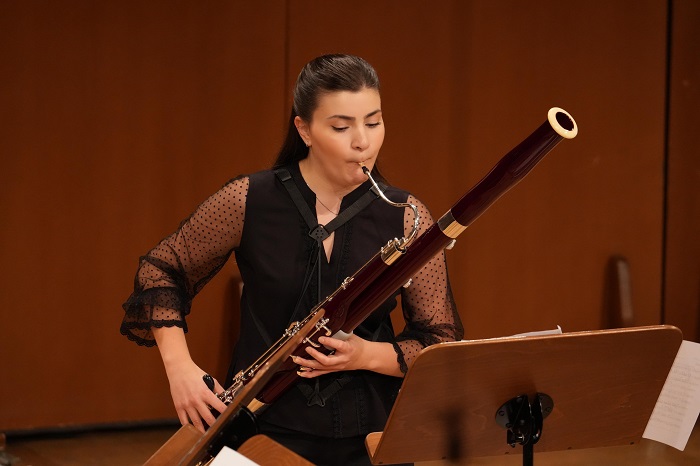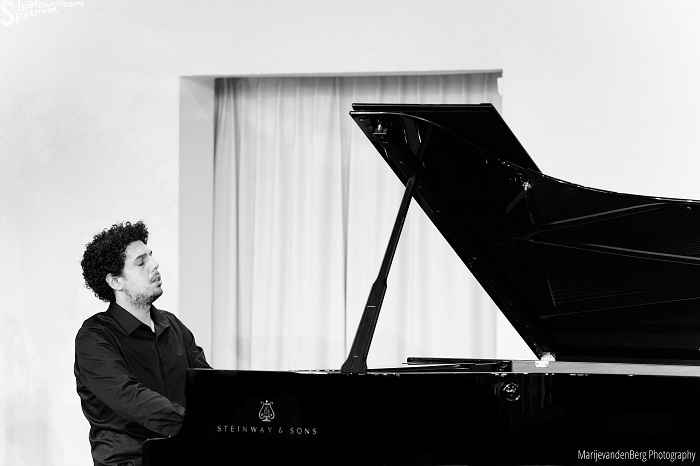Art is the most universal form of self-expression. The connection a musician creates with notes transcends geography and cultural codes, touching hearts all over the world. However, becoming a musician is not a journey guided solely by talent; it also requires access to education, discipline, and the right opportunities.
In Türkiye, access to educational resources is crucial for artists—and especially young musicians—to showcase their talents on international stages. Unfortunately, this journey is not equally accessible to everyone, often hindered by financial and structural barriers. This is precisely where programs like the Dr. Nejat F. Eczacıbaşı Foundation Music Scholarships play a critical role, acting as a vital bridge to help young talents realize their dreams. Since 1987, the Dr. Nejat F. Eczacıbaşı Foundation Music Scholarships have provided funding to 173 students pursuing master’s degrees in music abroad, supporting musicians at a crucial turning point as they make their mark on the world stage.
What does it mean to be a musician? What supports are critical for transcending cultural boundaries and finding a place on the international stage? What opportunities and challenges have young artists from Türkiye encountered on this journey?
For the Eczacıbaşı Life Blog, we explored these questions—and the universal power of music—together with Musicologist, Pianist, and Dr. Nejat F. Eczacıbaşı Foundation Music Scholarships jury member Prof. Dr. Filiz Ali, and scholarship recipients: bassoonist Ece Nur Özer, classical violinist İdil Yunkuş, and pianist Salih Can Gevrek, as they shared their artistic journeys and experiences of studying abroad.
What does it mean to you to be a musician?
A musician is, above all, someone who is deeply interested in all branches of art, who is curious and inquisitive, and who, in proportion to their talent, finds a place for themselves in the world of sound—absorbing, making sense of, and expressing their inner and outer experiences. Sometimes a performer, sometimes an interpreter, and sometimes a creator. But it’s important to remember that being an artist or a musician isn’t merely a form of individual expression. A musician has a reciprocal relationship—and even responsibilities—towards society. If a musician wants to convey something to the world through music, that message must have substance, and as a society, we must be willing to listen. In this way, the artist and society become complementary and mutually enriching.
Being a musician is not just about conveying ideas and emotions; it also requires technical mastery and a tremendous amount of dedication—just as in the visual arts. In music, though, because of our sense of hearing, mistakes and shortcomings can be perceived much more directly. This is why the craftsmanship aspect of musicianship is as important as the message being conveyed.
What do you think are the most important factors in nurturing a musician?
This is not a question that can be answered with a single sentence because becoming a musician is a deeply layered process. Above all, access to quality education is essential. However, financial support is also a decisive factor. Music education—especially instrumental training—is quite costly. Between instruments, master classes, international programs, and competitions, a serious financial foundation is needed.
At the same time, mentors often have the most lasting impact on a musician’s journey. Working with a good teacher doesn’t just develop one’s technique—it shapes how a musician approaches their craft. Encounters with different performers in master classes, gaining stage experience, being open to criticism, and maintaining a lifelong commitment to learning… all of these together shape the musician.
What kind of ecosystem exists for music education and building a musical career in Türkiye? What steps do you think should be taken to encourage more young people to pursue the arts?
Music education in Türkiye has enormous potential but still lacks structural support in many ways. State conservatories and some private institutions do excellent work; however, this education is not equally accessible to everyone. Geographical and economic disparities can prevent talented young people from reaching their full potential.
In my opinion, the first step is to increase opportunities for children to encounter music at an early age. Music education in public schools should be more robust. In addition, expanding financial support through scholarships and strengthening international connections is critical. Talent alone is not enough; we must also create the environments that allow that talent to flourish.
The Ayvalık International Music Academy (AIMA) plays a crucial role in this. Programs like AIMA shouldn’t just exist in coastal towns like Ayvalık—they should be part of an organic network that spans every corner of Türkiye, where institutions support one another and build upon each other’s strengths. A network should be created to achieve the shared goal of “providing early opportunities for children to experience music.” There may be many different ideas about the form and tools of such a network, but our experience at AIMA has shown how valuable and effective these opportunities can be.
Institutions like these act as natural connectors—between academia, the arts community, business leaders, cultural ambassadors, local governments, charitable organizations, and more. They serve as bridges that support and nurture all these areas.
What message would you like to share with young musicians?
The journey of art is long, and often solitary, but it is also deep, meaningful, and transformative. My greatest advice to young musicians is to never lose their sense of curiosity and to remain open to learning. Embrace music with passion, but don’t limit yourself to a single focus—try to understand art and life as a whole. Playing an instrument perfectly is just as important as developing a sensitivity to the world. And remember, every sound has a counterpart in the world—if only you dare to find it.
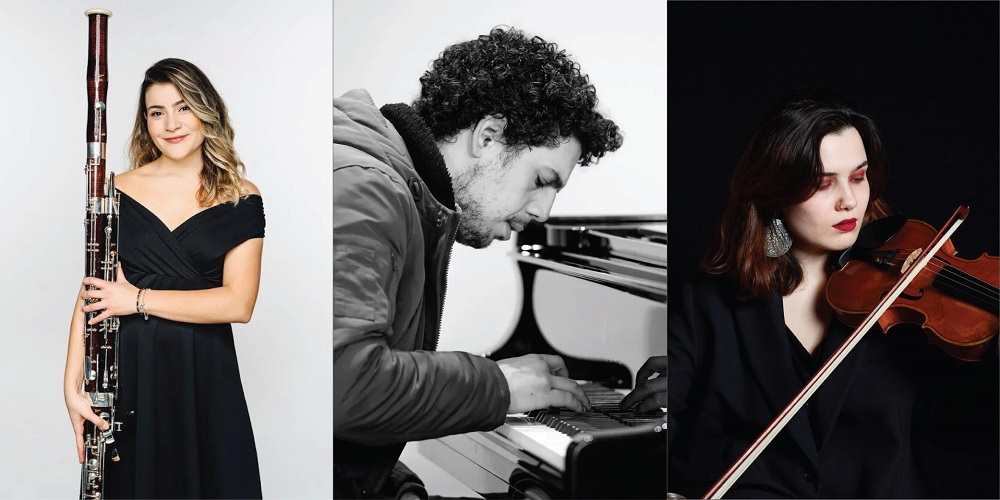
Bassoonist Ece Nur Özer, classical violinist İdil Yunkuş, and pianist Salih Can Gevrek—supported by the Dr. Nejat F. Eczacıbaşı Foundation Music Scholarships during the 2022-2023, 2023-2024, and 2015-2016 periods, respectively.
From a young age, you all began your musical journeys and are recognized as extraordinarily talented musicians. How did your journey into music begin?
İdil Yunkuş: Being born into a family full of musicians, my musical journey began long before I ever held an instrument in my hands. As a child, I had the chance to regularly attend concerts, and these experiences introduced me to the enchanting and multifaceted nature of music. From the earliest days of learning to walk and talk, music—alongside words and steps—became one of the essential elements of my journey.
Salihcan Gevrek: My musical journey began the day I was born, listening to Bach through headphones placed on my mother’s belly. My parents were both musicians, so I grew up surrounded by music. I started taking lessons at the age of five, and the rest is history…
Ece Nur Özer: My journey began when my mother bought me an organ at the age of five. I would spend hours trying to play the melodies I heard on my own. I was the kind of child who was always singing into a microphone at home, completely immersed in the rhythms of music. When I was nine, my elementary school music teacher, Serap İşçan, recognized my talent and encouraged me to take the conservatory entrance exams. That’s when music became the path I would pursue with all my dreams.
What does it mean to be a musician who performs with large orchestras? What have been the biggest challenges and most enriching experiences on your journey?
İdil Yunkuş: For performers—especially those who aspire to specialize in the performing arts—stage experience is essential. The countless hours, weeks, and even months spent in the practice room, meticulously focusing on the smallest details and investing all your energy and time, finally bear fruit on stage. That’s why every single stage experience I’ve had since I was very young has left a profound imprint on the formation of the “well-rounded artist” identity that remains my foremost goal and a lifelong pursuit of growth.
To be honest, the biggest challenges I’ve faced and the experiences that have helped me grow the most have often gone hand in hand. In fact, the key factors shaping these experiences were rarely external—rather, they were my own inner processes. I’ve always seen myself as a colorful person, and as I gradually began to embrace this diversity within me, I developed a new consciousness: a deeper awareness and a more open perspective towards myself, nature, and the world around me. But before I started to accept this richness—especially around the ages of 16 and 17—I would sometimes perceive it as restlessness, and interpret the moments of stagnation I felt when my expectations weren’t met as laziness.
Today, I see that this multifaceted nature is not a conflict, but rather a tremendous asset. Instead of forcing myself into a single mold, I’ve discovered ways to bring together different areas of my life. This process has been one of the most valuable discoveries—shaping both my artistic expression and how I see the world.
Salihcan Gevrek: Playing with large orchestras is both a tremendous honor and an invaluable learning experience. Making music with exceptional musicians—whether in an orchestra or chamber music setting—is a profoundly special feeling. Sharing the music, feeling the same emotions, and ultimately creating something together is, I think, every musician’s dream.
It’s already clear that a musician has to work incredibly hard and navigate many challenges to master their instrument—this is simply part of being an artist.
At first, studying abroad meant significant financial challenges for me. Despite scholarships from Türkiye and London, I still faced difficulties like many other musicians. But I was incredibly fortunate to have been accepted to study in London on a full scholarship for exceptional talent, and valuable institutions from our country have always supported me. The most challenging aspect for me has been the feeling of complete solitude in my career. Since childhood, I have always tried to stand on my own through my work alone. I have never been one to rely on my teachers, family, or other organizations to build my career, which naturally makes it a rather solitary journey. Yet, I know it’s the right path. I’ve never chosen it for success or recognition—but for better music. That perspective has been the most important and strengthening experience for me. Like the deeply inspiring words of Fazıl Say, which have resonated with me so powerfully, I’m committed to “continuing on this path in search of what is good.”
Ece Nur Özer: Playing with large orchestras is not just about performing music—it’s about feeling it deeply, internalizing every tiny detail, and fully embodying the soul of each piece. Being part of an orchestra requires not only technical skills but also patience and the ability to harmonize with others. It’s not enough to play your own instrument perfectly; you must also learn to listen attentively, to adapt seamlessly to your surroundings, and to contribute to the living, breathing organism that is the orchestra. It’s about instinctively understanding one another, moving together as one, and losing yourself in the music—only to be reborn in its embrace. That is the magic of playing with a great orchestra.
One of the biggest challenges in my journey as a musician has been learning to thrive in an environment of constant competition and always striving for the best performance. This is a profession filled with uncertainty. You must learn to be patient while waiting for the results of an audition, to transform disappointment into motivation. Over time, I learned not to get lost in the competition but to compete with myself every single day. Because in the end, this career is all about understanding your own limits.
The experiences that have helped me grow the most have been shaped by the responsibilities and discipline that come with playing in large orchestras. My two years as an academist with the WDR Cologne Radio Symphony Orchestra taught me how to adapt to the pace of a professional orchestra, to play with maximum focus in every rehearsal and concert, to always be ready to perform at the highest level, and to see music from a much broader perspective.
As an artist born and raised in Türkiye, what did studying in another country bring you? How do you think the support of the Dr. Nejat F. Eczacıbaşı Foundation Music Scholarships influenced your education and journey?
İdil Yunkuş: I have always felt immense pride in being an artist born and raised in this country. The rich cultural heritage of our nation, the coming together of different civilizations to create such diversity, and the deep historical context of our music are among the most significant elements that have shaped my artistic identity.
However, studying in a different country was an experience that broadened my artistic perspective and transformed me both personally and professionally. Working alongside artists from various cultures deepened my perception of art and helped me understand the importance of drawing from my own roots to create a universal language.
The support I received from the Dr. Nejat F. Eczacıbaşı Foundation Music Scholarships was a tremendous boost at one of the most critical points in my journey. This scholarship wasn’t just financial support—it came with the sense of being part of a visionary effort to open new horizons for artists. The knowledge I gained, the experiences I accumulated, and the connections I established during my studies all helped me bring my art to a more original and multifaceted level. Throughout this process, I was able to experience both the responsibility of representing my country’s artistic heritage on international stages and the freedom to explore new forms of expression.
Fueled by this motivation, last year I was awarded the 2024 “Vioolbeurs” prize by the Het Kersjes Fund, one of the Netherlands’ largest private music foundations—an incredibly important milestone in my career. This prestigious program does not accept applications; instead, it identifies candidates through long-term observation and recommendations. My journey with this fund began when my esteemed teacher, Prof. Janet Krause, introduced me to the fund’s director, Annette den Heijer. Annette followed my work through the concerts and competitions I participated in, and in September she called me to share the news that I would be supported by the fund for three years. This support isn’t just financial—it also includes private lessons, master classes, festival participation, and even the creation of a personal website, all designed to foster my professional development.
Seeing the names of the versatile and innovative artists who previously received this award reinforced my belief that I am on the right path and reminded me that my dreams are not solitary. Being a recipient of the Dr. Nejat F. Eczacıbaşı Foundation Music Scholarships—which shares the same ideals as the Het Kersjes Fund—not only makes me feel the power of these two institutions behind me but also gives me the courage to keep creating, learning, and sharing on both national and international stages. I am deeply grateful to everyone who has believed in me and illuminated my path on this journey.
Salihcan Gevrek: When I came to London in 2012 to study, I felt like I had arrived at one of the true homes of classical music. One of the most important factors for an artist is to interact with Europe and other cultures. Without the support of the Dr. Nejat F. Eczacıbaşı Foundation Music Scholarships, it wouldn’t have been possible for me to continue studying over these years. I am so grateful for that support—it was a time of real challenges.
Ece Nur Özer: Encountering a new culture, while navigating an entirely different educational system, expanded my perspective on music and art in ways I could never have imagined. The environment in Germany not only honed my technical skills, but also inspired me to view art through a freer, more creative lens—one that pushed me to embrace innovation and experiment without fear. There, I discovered the universal language of music on a deeper level and honed my ability to use art as a tool for communication. Working with musicians from diverse backgrounds also gave me greater appreciation for the richness and power of artistic diversity.
The support I received from the Dr. Nejat F. Eczacıbaşı Foundation Music Scholarships was a significant source of motivation in overcoming the challenges I faced during my studies. This financial and emotional support enabled me to focus more strongly on my dreams and goals. Thanks to this support, I was not only able to overcome daily difficulties but also to advance in my artistic journey with more confidence and solid steps. Repaying this invaluable support through every success and achievement has been one of the most important promises I made to myself—and I am proud to have kept it. This process has instilled in me a strong sense of responsibility and determination—both as an artist and as an individual.
Finally, do you have any messages to inspire young musicians from Türkiye? What would you like to say to those who dream the same dream today? What is your most important piece of advice for them?
İdil Yunkuş: Never stop dreaming. Art and music are much more than “professions” that provide a livelihood; they are lifelong journeys that mirror our essence. Along this journey, don’t forget to give yourself time to grow. With desire, patience, and determination, there’s no goal you can’t reach—like a flower placed in a sunny corner of the house, nurtured with balanced care and love.
Salihcan Gevrek: I’d like to share the most inspiring piece of advice I’ve ever heard from my teacher, one of the world’s greatest pianists, Dmitri Alexeev: “Love music as much as you possibly can.” While this might sound simple, it’s a deeply thought-provoking and profound message—unlike any other advice I’ve received, it goes straight to the core of it all. I hope it resonates with my young colleagues.
Ece Nur Özer: To the young artists who share this dream today, I want to say: this journey will not be easy. But every challenge you face will shape you into a stronger and more mature artist. My greatest advice is to protect your love for music above all else—because that love is what will keep you going and what will bring you back to your instrument, no matter what. Constantly develop yourself, strive to gain new perspectives, and always stay open to learning. In the beginning, everything may seem daunting, but if you keep going with passion, you can overcome anything. Success is not only about talent—it’s also about determination and the love you have for what you do. Trust in the power of music; as you continue on your journey, you’ll find yourself one step closer to your dreams.
Short questions with the scholarship recipients…
Your biggest dream?
İdil Yunkuş: To work on innovative projects and initiatives that will contribute to the development of art and music in our country.
Salihcan Gevrek: For people to live in greater harmony and under more humane conditions.
Ece Nur Özer: My biggest dream is actually coming true right now. Becoming a solo bassoonist in an orchestra in Germany has always been a dream of mine. To be able to touch people’s hearts, leave a mark on their souls, and make them feel something with each note in a concert watched by thousands—that is one of the most profound and fulfilling experiences of music for me.
Which musician or artist—whether living or no longer with us—would you most like to share the stage with?
İdil Yunkuş: Ayla Erduran.
Salihcan Gevrek: This list is truly endless—it could fill pages… From my own country, I would love to share the stage with Fazıl Say, who has deeply inspired me since childhood, performing pieces from the magnificent two-piano repertoire… And of course, S. Rachmaninov. Legendary violinist Fritz Kreisler, cellist Daniil Shafran, conductor Carlos Kleiber… Among living conductors, Klaus Mäkelä and Kirill Petrenko… The list goes on and on.
Ece Nur Özer: One of my greatest dreams is to share the stage and work with the renowned conductor Sir Simon Rattle. I would also consider it a tremendous honor to share the stage even once with the late maestro Claudio Abbado and to experience his profound musicality. Performing alongside the world-renowned pianist Martha Argerich is also among my dreams—I believe witnessing her passion and approach to music would offer me so much as an artist.

What inspires you?
İdil Yunkuş: All artists who aren’t afraid to be original and who approach their work with both a sense of duty and genuine passion.
Salihcan Gevrek: I can’t name a specific example because I find inspiration in every moment of life. I think simply being alive is the greatest source of inspiration. And of course, nature…
Ece Nur Özer: My family has always been my biggest source of support. Their love and trust give me courage and help me stay strong in my musical journey. My bassoon feels like a true friend; it teaches me new things every day and opens the door to new worlds. My greatest source of inspiration is my idol and beloved teacher, Prof. Henrik Rabien. His approach to music, his passion, and his deep love for art inspire me daily and motivate me to push myself further. Additionally, the concerts I watch, the music I listen to, the quiet walks I take in my free time, and the moments I spend immersed in nature constantly offer me new ideas and inspiration.
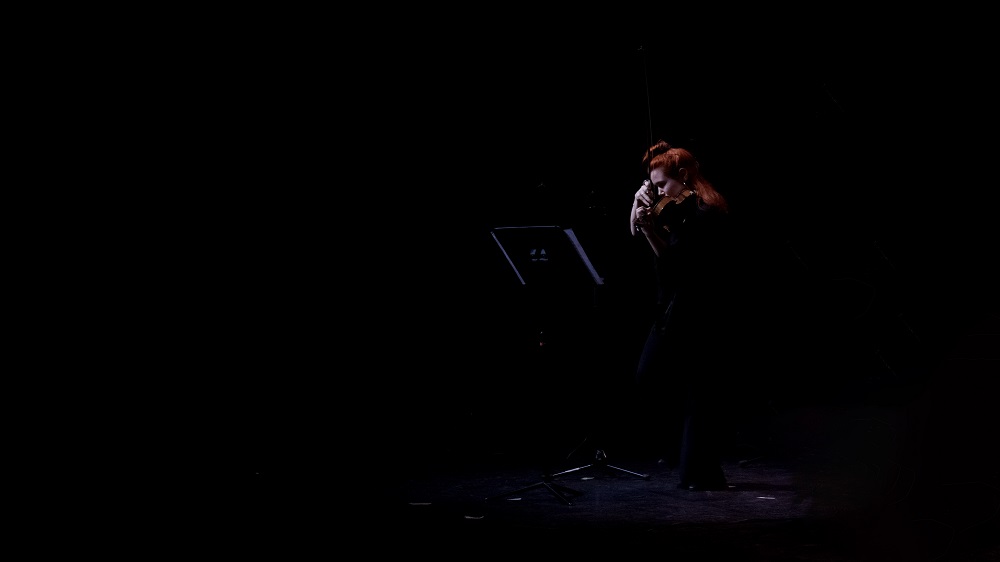
Your most unforgettable performance?
İdil Yunkuş: The concert at the Presidential Symphony Orchestra (CSO) Main Hall, where I performed with the Hacettepe Symphony Orchestra and the TRT Polyphonic Choir under the baton of the esteemed Burak Tüzün as part of the celebrations for the 100th anniversary of our Republic.
Salihcan Gevrek: Last year, in a competition, I performed Mozart’s Concerto No. 20 for the first time. I learned the piece in just one month and went on stage without even rehearsing it once with two pianos. On the day of the competition, I played it straight through with the orchestra for the first time. Despite all the pressure, with no rehearsal or concert experience with this piece, I stood on that stage in front of the Medici TV cameras. From the orchestra’s very first note, I felt Mozart’s genius and the power of music in the purest form I’ve ever experienced. It’s a deeply tragic and dramatic piece, yet also full of hope. Mozart’s music is impossible to describe in words. The recording is now available on YouTube—I hope those who watch it feel the same emotions I did.
Ece Nur Özer: There have been many concerts and performances that I’ll never forget, but some stand out in a way that’s hard to put into words. During a three-week tour of China with the WDR Cologne Radio Symphony Orchestra, playing the third movement of Brahms’ 3rd Symphony was an indescribable experience for me. My past, my efforts, my dreams, and everything I’d experienced up to that moment seemed to flow through those notes. Every note carried profound meaning, and I found myself on stage with tears in my eyes, my heart beating in rhythm with the music… It was so powerful and real—etched in my memory as a moment when I felt overwhelming gratitude for all I have and an incredible sense of luck. It was as if music itself had become a river of emotions, carrying me forward on its waves… I will never forget that performance.
If you could make one decision to shape the future of the arts, what would it be?
İdil Yunkuş: I would create a platform that gives a voice to both us and the generations of young artists who will come after us—a platform that brings audiences together on stage.
Salihcan Gevrek: I would work to restore a mindset in the arts where the primary goal is not to sell more and faster, but to prioritize quality and the value of individuality.
Ece Nur Özer: If I had the chance to make a decision to shape the future of the arts, I would create more opportunities for young musicians studying at conservatories in Türkiye. My priorities would include establishing orchestras, international master classes, and academy programs that allow students to develop not only technically but also through stage experience.
Providing young musicians with the chance to work with world-renowned artists and receive an education that meets international standards would be one of the most important steps toward strengthening Türkiye’s musical future. Because I know how far talented young people can go when they have the right opportunities.
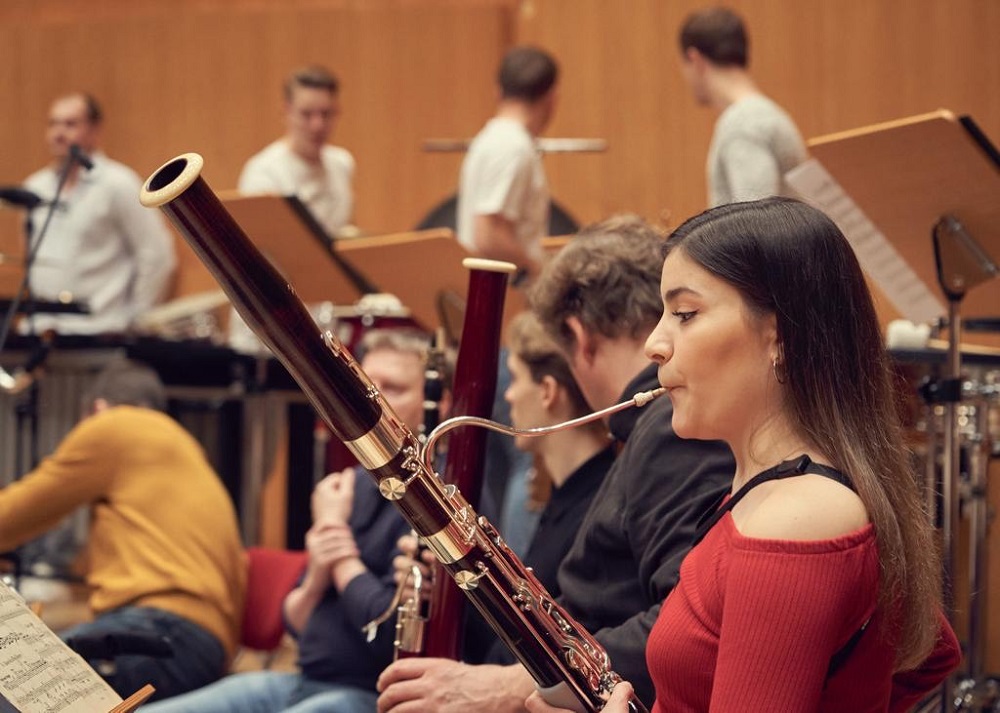
Your favorite piece to perform?
İdil Yunkuş: Hasan Niyazi Tura’s Introduction and Horondo Capriccioso.
Salihcan Gevrek: John Cage – 4’33” :)
All jokes aside, this list is truly endless… But to give a few examples: Bach’s Partita No. 6, the Beethoven concertos, and of course, Mozart… On April 30th, I’ll be performing Rachmaninov’s Second Piano Concerto at the Ankara Music Festival, which is definitely at the top of this list. Also, Beethoven sonatas, Chopin’s Op. 10 and Op. 25 Etudes… It’s impossible to fit it all here, and there are still so many works I want to learn. It’s like an ocean—endless.
Ece Nur Özer: Saint-Saëns’ Bassoon Sonata has always held a special place in my heart. When I play it, I feel as if I’m having a conversation with my instrument—each note carries a different feeling, a different meaning.
In the orchestra repertoire, Tchaikovsky’s Fourth Symphony is one of the works that most powerfully conveys the composer’s inner world and emotions. In particular, the bassoon solo holds a very special place for me.

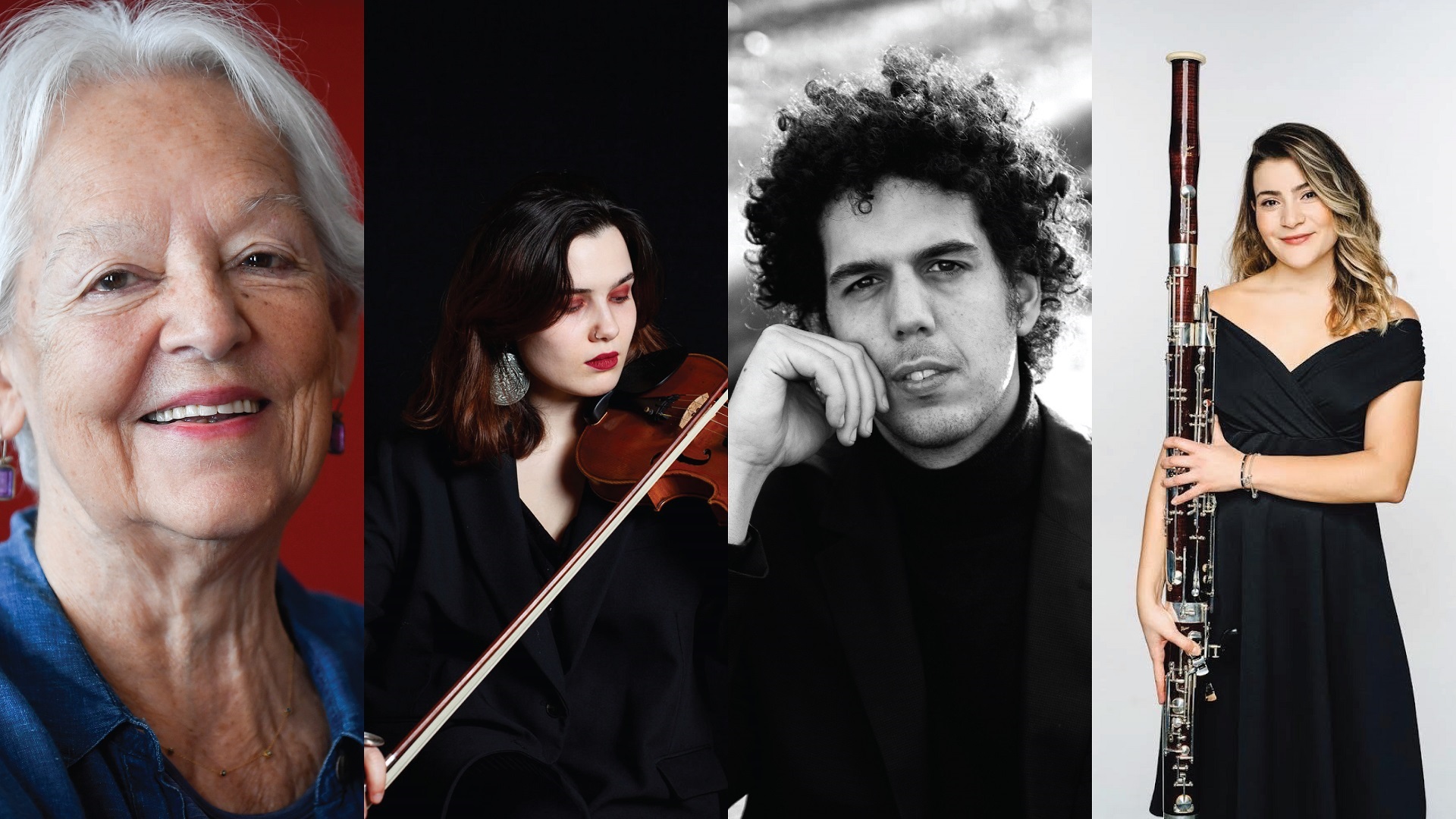
.jpg)
